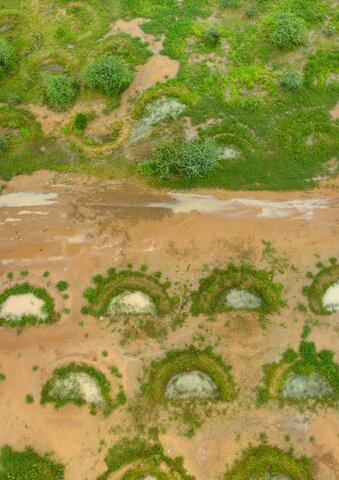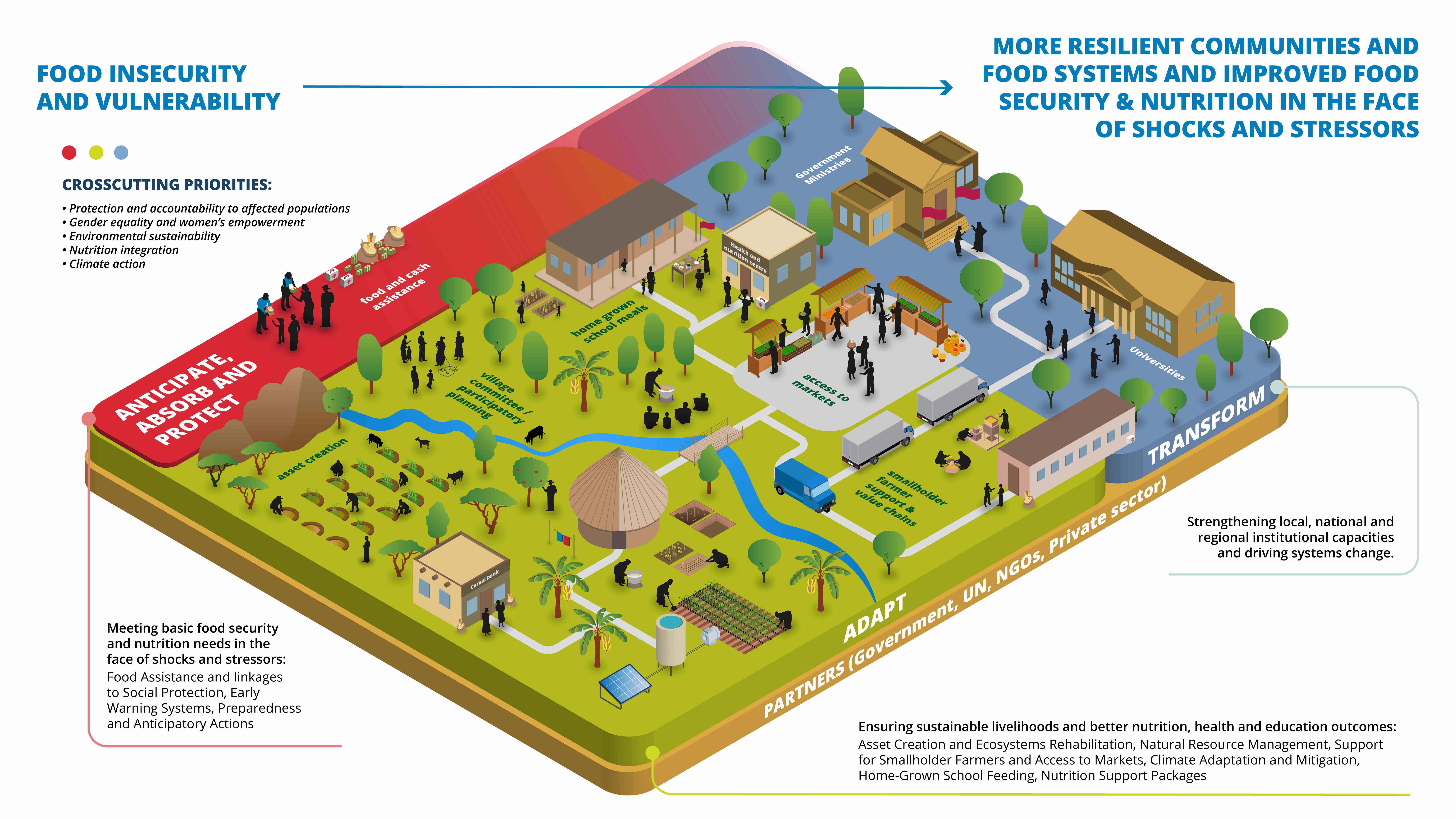The region's multifaceted challenges, including conflicts, climate change and the economic effects the COVID-19 pandemic, severely impact food security and nutrition. While people living in the Sahel have contributed little to climate change, they are among those most affected by its cascading effects, such as land degradation, erratic rainfall and recurrent droughts.
WFP’s resilience efforts in the Sahel focus on sustainable land and natural-resource management. Initiatives include land rehabilitation to boost local food production, protect biodiversity and reduce vulnerability to climate shocks. Nutritious school meals enhance children's health and nutrition, enabling them to learn and perform better at school while easing the burden on vulnerable families to provide daily meals. The programme also focuses on developing local capacities and developing value chains for smallholder farmers, facilitating increased access to markets to boost incomes and create green jobs. Moreover, efforts are directed towards reducing conflict between different groups (for example internally displaced people and host communities, or farmers and herders) through asset creation, promoting improved relations and reducing prejudice. The assets built also aim to improve long-term food security. Over the past five years, WFP, along with governments and partners, has reached 4 million people across 3,400 villages in the Sahel, and rehabilitated over 300,000 hectares of land. This effort has enhanced food accessibility and promoted healthier diets, reducing the demand for humanitarian aid.
Building on these successes, WFP and our partners launched a second phase from 2023 to 2028. This aims to strengthen and scale up resilience efforts, integrate the programme with access to basic services, social protection and climate action, enhance collaboration with partners and governments, and develop evidence and knowledge based on good practices.




